When purchasing a property, the Veterans Administration loan program is a valuable resource for veterans and active-duty military personnel in the United States.
VA loans are an excellent way for service veterans to become homeowners since they have lower interest rates than standard mortgages and don’t demand a down payment.
Yet, there are still a lot of VA loan myths, misconceptions, and false beliefs in spite of these benefits.
Today, we will “debunk” 10 of the most common myths, misconceptions, and misunderstandings about VA home loans.
Top 8 VA Loan Myths and the Truth Behind Them
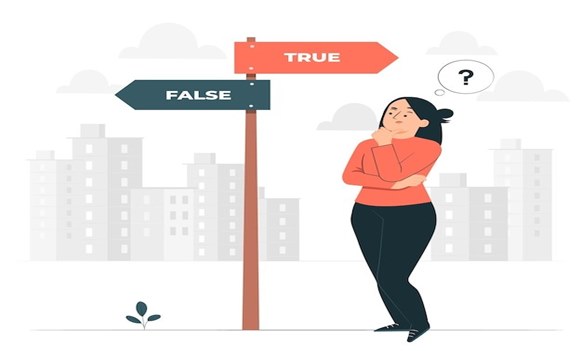
I need to have excellent credit to qualify for a VA loan. They take a really long time to close. They can only be used once. VA loans are risky for sellers. Those are just a few of the common VA loan myths we’ll dispel today. So let’s get started…
Myth #1: VA loans are only for veterans who’ve served in combat.
A lot of misconceptions about VA loans are happening. The most common one is that VA loans are offered only to veterans who had the opportunity to serve in combat. This myth results from a wrong interpretation of the veteran-only loans’ requirements. While a VA loan often would require combat experience, it neither fully qualifies a veteran nor is it a prerequisite.
Therefore, you do not have to be a combat veteran to qualify for a VA loan. This program is extended to active-duty service members, the National Guard, reservists, and veterans who meet VA loan statement of service criteria. Combat service is not a prerequisite for the VA home loan program.
It should be mentioned that VA loans are not intended only for veterans. They are also accessible to active-duty military personnel, eligible spouses of certain deceased veterans, and Reserve and National Guard members who fulfill the eligibility criteria.
Myth #2: They take much longer to close than regular mortgages.

On average, VA loans take a few days longer to close than traditional/conventional mortgage loans. But the difference is so tiny that it’s hardly worth mentioning.
And when you consider that borrowers using a VA loan can avoid making a down payment, the difference of a few days becomes even less of an issue.
More significantly, data indicate that VA loans have a higher success rate in the VA loan closing process than conventional mortgage financing. This means home buyers using the VA loan program are more likely to reach the finish line and receive funding. And that’s good for all parties involved, including the buyer and seller.
As a borrower, you can help keep the process on track by providing documents in a timely fashion and staying in touch with your mortgage broker or loan officer throughout the entire VA loan process.
Myth #3: VA loans have restrictive property requirements.
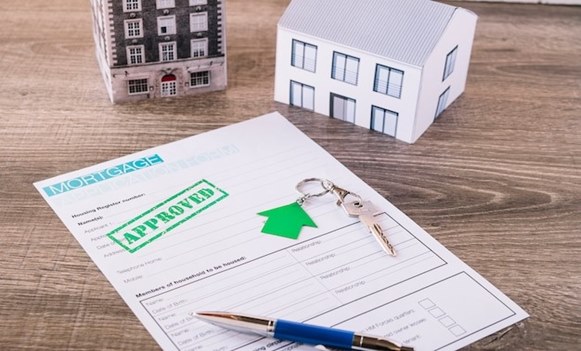
The Department of Veterans Affairs mandates a set of minimum property requirements or MPRs for homes purchased with a VA loan. However, most of these requirements concern essential health and safety issues. They’re not nearly as strict as some people think.
With that being said, you probably shouldn’t attempt to use a VA loan if you’re interested in buying a fixer-upper type of property. This loan program is primarily designed for homes that are move-in ready and don’t require extensive repairs to make them habitable.
Myth #4: I can only use this benefit once.
Your VA home loan benefit is not a one-and-done type of situation. In fact, you could use this program over and over throughout the years as long as you continue to meet the basic eligibility requirements.
If you use a VA loan to buy a house and later refinance to a VA loan to pay off the mortgage debt, you will restore your “entitlement” in the program. This means you could use the program to buy another house down the road without making a down payment.
Visit your VA Home Loan Certificate of Eligibility online or get in touch with the Department of Veterans Affairs to find out how much money you may still be eligible for if you have already taken out a VA loan.
You may still be entitled to another VA loan, depending on whether you have adequate entitlement and conform to the conditions for VA eligibility.
To determine your choices for refinancing an existing loan or buying a new home, speak with an experienced lender who specializes in VA loans.
Taking into account your unique situation and financial objectives, they can help you make the right decision and lead you through the process.
Myth #5: The VA loans money directly to borrowers.

While backed by the federal government, VA home loans are issued by mortgage lenders in the private sector. So, in this regard, they are similar to other kinds of mortgage loans, including conventional and FHA loans.
The Department of Veterans Affairs gives mortgage lenders who participate in this program a partial guarantee against losses stemming from borrower default. This means lenders can recoup some of their losses if the borrower cannot repay the loan. This added layer of protection allows lenders to offer very flexible qualification criteria.
However, the funding comes from the lender, not the government.
Myth #6: VA loans cannot be used for investment properties.
Most people who use a VA loan to purchase a home buy a single-family property that serves as their primary residence. However, in specific scenarios, home buyers can use a VA loan to buy a multifamily investment property.
The caveat here is that one of the units must serve as your primary residence. For example, a borrower could use a VA loan to purchase a duplex or triplex property, reside in one of the units, and rent out the other unit(s).
This is a popular strategy among some home buyers because it allows you to earn an income from your purchasing property.
Myth #7: I need to have excellent credit to qualify.
This is another damaging misconception that prevents some borrowers from applying for a VA loan, even when they’re an excellent candidate for the program. So, let’s debunk this myth once and for all.
The truth is that the VA home loan program has some of the most flexible and “forgiving” VA loan credit requirements for any type of loan. The Department of Veterans Affairs doesn’t even require a minimum credit score. They leave it up to the mortgage lender.
And because of the federal guarantee mentioned earlier, lenders tend to be very flexible regarding credit scores for VA loan borrowers.
According to an article published a few years ago on the VA.gov website:
“VA Loans are more lenient than conventional when it comes to your credit history. VA has no credit limit, though it is true that VA lenders generally look for a 620 FICO score, which, in layman’s terms, means “Fair” credit (followed by “Good” and then “Excellent”). Conventional loans often require a 660 minimum credit score, although you may need more like a 740 to have a shot at the best rates and terms.”
The first step towards making your credit as healthy as possible is a credit report from one of the three major credit bureaus. Then, carefully review it page by page, looking for errors or similar mistakes.
Ensure your credit score reflects the current status of your money matters by reporting any error you realize along the way. Balancing down your credit utilization, prioritizing your bill payments, and deterring from applying for new credit so you can raise your credit score.
To raise your credit score, you need to count on the assistance of a certified credit counselor, someone who can provide you with personalized advice based on your circumstances.
In the end, talk to your lender regarding your credit status so that they have a chance to provide you with a specialized plan and the right program to point you to eligibility for a VA loan.
Myth #8: VA loans are “risky” for sellers.
Last, we encounter one of the most unfortunate myths and misconceptions about VA loans. And this one goes back decades. The misconception is that VA loans are more likely to “fall through” compared to conventional financing because of the property requirements mentioned above.
But, as we’ve discussed, VA loans have a higher closing success rate when compared to other types of mortgages. Sellers should consider this when reviewing offers from home buyers using VA loans.
The Department of Veterans Affairs does not require a comprehensive home inspection. However, they do require a VA appraisal, which has a fundamental inspection component built into it. The VA appraisal requirement must cover that the property will not pose any health or safety issues for the new occupant.
The VA loans present many advantages and opportunities to those who qualify as veterans, military personnel currently on duty, and their spouses to come into home ownership.
Moreover, when using this advantageous financing option, borrowers may make well-informed judgments.
Regardless of whether it’s your first time home buying or you’re experienced as a property owner, a VA loan is a way through which you can affordably and efficiently own a home if you were in the military.


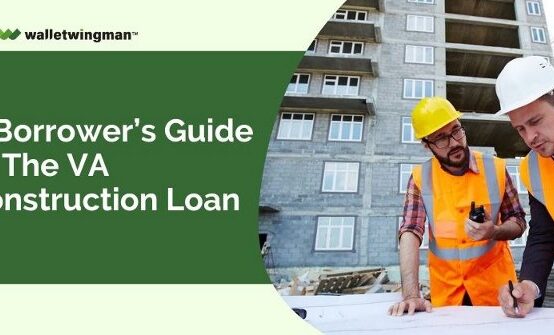 A Borrower’s Guide to the VA Construction Loan
A Borrower’s Guide to the VA Construction Loan 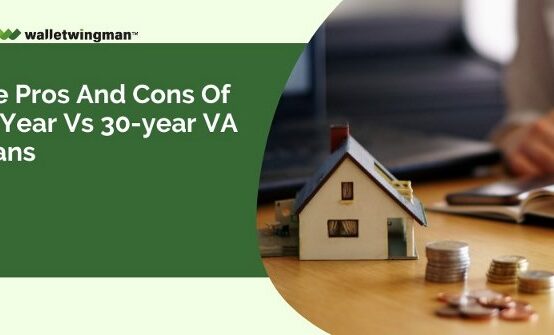 The Pros and Cons of 15-Year vs 30-year VA loans
The Pros and Cons of 15-Year vs 30-year VA loans  Answered: The Top 10 Questions About the VA Loan Program
Answered: The Top 10 Questions About the VA Loan Program 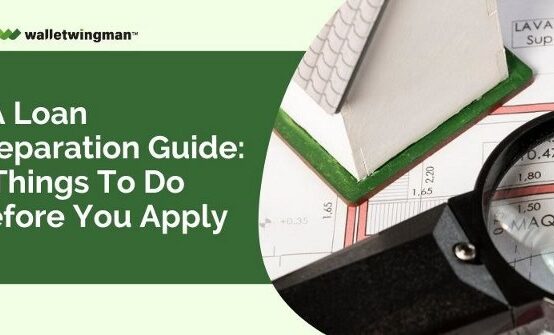 VA Loan Preparation Guide: 7 Things to Do Before You Apply
VA Loan Preparation Guide: 7 Things to Do Before You Apply 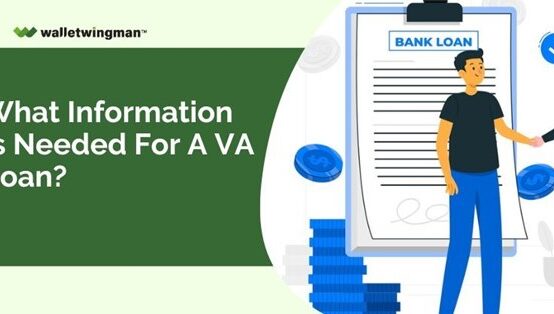 What Information Is Needed for a VA Loan?
What Information Is Needed for a VA Loan? 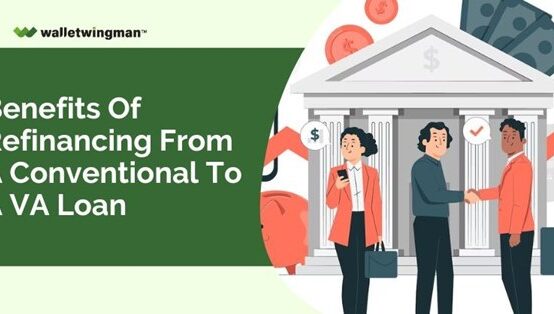 Benefits of Refinancing From a Conventional to a VA Loan
Benefits of Refinancing From a Conventional to a VA Loan 